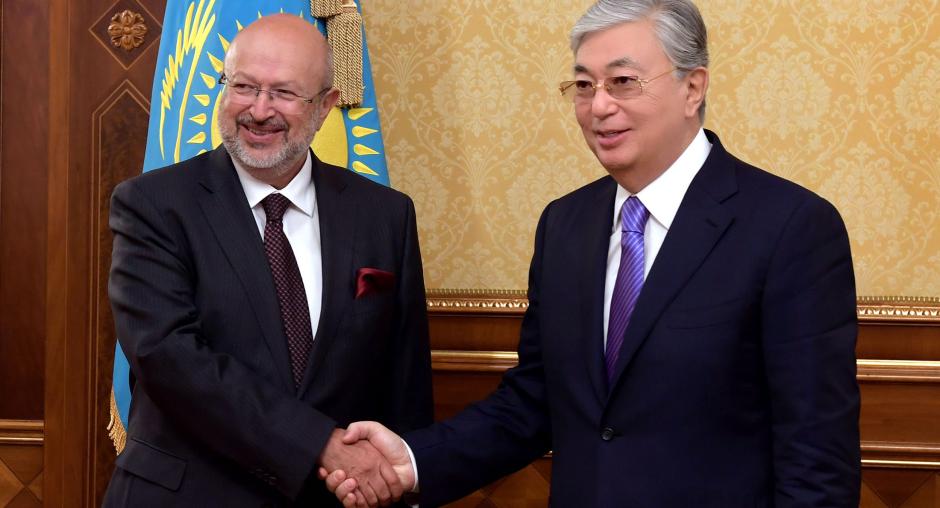OSCE High Commissioner on National Minorities conducts high-level visit to Kazakhstan

NUR-SULTAN, 6 September 2019 - OSCE High Commissioner on National Minorities (HCNM) Lamberto Zannier is concluding today his first official visit to Kazakhstan since taking up his mandate.
The High Commissioner met President Kassym-Jomart Tokayev, Senate Chairperson Dariga Nazarbayeva, Mazhilis Chairperson Nurlan Nigmatulin, several government ministers and other high-level officials in Nur-Sultan. “The President and I exchanged views on the situation of inter-ethnic relations in the country and discussed prospects for future co-operation, taking into account Kazakhstan’s long experience accommodating and promoting its rich ethnic diversity,” said Zannier.
While in Nur-Sultan, the High Commissioner exchanged experiences with the Assembly of the People of Kazakhstan and presented the HCNM thematic Recommendations and Guidelines. He also discussed further steps in co-operation with the Ministry of Education and Science, including extending the memorandum of understanding on the HCNM’s Central Asia Education Programme.
At a separate event organized together with the Ministry of Internal Affairs and the Strategic Police Matters Unit of the OSCE Transnational Threats Department, with the support of the OSCE Programme Office in Nur-Sultan, the HCNM presented the Graz Recommendations on Access to Justice and National Minorities and the Recommendations on Policing in Multi-ethnic Societies.
The High Commissioner then visited the city of Petropavlovsk in northern Kazakhstan, a region where ethnic Russians make up the majority of the population. He met regional and local authorities, visited several schools and also observed how the region’s history had been reflected in public spaces. “In any multi-ethnic region, carefully accommodating various interpretations of history helps promote mutual understanding and social cohesion. I found Petropavlovsk to be an interesting example of a city where different ethnic groups strive to find such a balance in practice,” said Zannier.
Finally, in Almaty Zannier met with local authorities and visited a school with Uyghur as the language of instruction, which has successfully piloted mother tongue-based multilingual education in four languages, supported by the HCNM’s Central Asia Education Programme.
